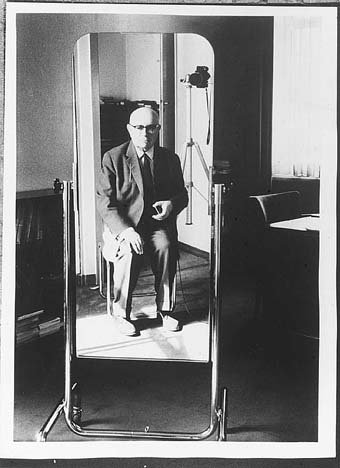Foucault
once said that Hegel prowls amongst us, constantly reminding us of
what we have lost by abandoning his view of history. But it is not
so much Hegel, but the entire legacy of Enlightenment which haunts us
today. Foucault himself addressed the problem of Enlightenment in
his commentary on Kant's "What is Enlightenment?" The
legacy of Enlightenment has been of grave concern since the of
origins of Enlightenment. This concern reached its high watermark
with the work of Critical Theory and the Frankfurt School. This
concern is often associated with the publication of Horkheimer and
Adorno's Dialectic of Enlightenment,
but it is one that
pervades and stimulates the diverse work of Critical Theory. This
work is also central to understanding the concerns of "postmodern"
(or "postmarxist") social theory, especially in the field of Cultural
Studies. Indeed, Foucault credited
Critical Theory with such importance and insight that he declared it
to have been his great fortune to have discovered the Frankfurt
School late in his work, because otherwise "...if I had
encountered the Frankfurt School while young, I would have been
seduced to the point of doing nothing else in life but the job of
commenting on them....And I don't even know whether to be glad or
feel sorry about it". One important connection that Foucault
found between his work and that of Critical Theory was their common
critique of Enlightenment.
"...I
think that the Frankfurt School set problems that are still being
worked on. Among others, the effects of power that are connected to
a rationality defined in the West, starting from the sixteenth
century on. The West could never have attained the economic and
cultural effects that are unique to it without the exercise of that
specific form of rationality. Now, how are we to separate this
rationality from the mechanisms, procedures, techniques, and effects
of power that determine it, which we no longer accept and which we
point to as that form of oppression typical of capitalist societies,
and perhaps socialist societies, too? Couldn't it be that the
promise of Aufklarung (Enlightenment), of attaining freedom
through the exercise of reason, had been, on the contrary, overturned
within the domain of Reason itself, that it is taking more and more
space away from freedom? This is the fundamental problem that we all
debate....And this problem, as we know, was singled out by Horkheimer
before the others, and it was the Frankfurt School that measured its
relationship with Marx on the basis of this hypothesis. Wasn't it
Horkheimer that sustained that in Marx there was the idea of a
society as being like an immense factory?" (from interview with
D. Trombadori)
Indeed,
they share a great number of important concerns: the problem of
Enlightenment, the question of power and authority, sexuality, and
desire. This course will examine how the writers of the Frankfurt
School and the work of Michel Foucault confronted these questions. It
will also consider the degree of continuity between Critical
Theory and the tendencies of postmodernism exemplified by Foucault's
work.




